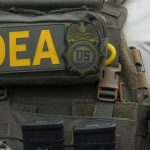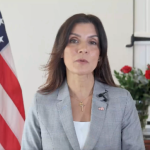DIGESETT in the “eye of the hurricane:” Three scandals that redefine its management

In an unexpected move, the President of the Republic, Luis Abinader, removed General Francisco Osoria de la Cruz as director of the General Directorate of Transit Security and Land Transportation (DIGESETT).
In his place, he appointed the recently promoted general Pascual Cruz Méndez, who would assume the position amidst a series of criticisms that marked the outgoing management, such as the following:
Questioned fines
Drivers reported having been fined for minor infractions, such as exceeding the speed limit by only 2 km/h in zones where the limit was 100 km/h.
These penalties generated a broad debate on the arbitrary application of traffic regulations.

INTRANT director Milton Morrison and citizens who expressed their support on social networks supported his position.

Senator Hector Acosta criticizes Digesett’s presence in “good” traffic lights.
@Margarita_Salcedo 22, in a Hoy Digital publication, expressed, “Change those people. The Amet are people; they don’t know how to measure the time they give way.”
New technological measures
Recently, the DIGESETT implemented breathalyzers and digital radars to measure the speed of vehicles.
However, these initiatives were received with skepticism by the citizens, who questioned their effectiveness in solving the structural problems of traffic.

Digesett’s radars for photo-based fines
Road safety experts like Antonio Germoso also noted the need for greater transparency in using these technologies.
With this change of command, General Pascual Cruz Méndez faces the challenge of regaining the citizens’ trust and strengthening road safety in the country.
Change of leadership at Digesett
President Luis Abinader issued Decree 172-25, by which he appointed General Pascual Cruz Méndez as director general of the General Directorate of Traffic Safety and Land Transportation (Digesett).
General Cruz Méndez has an extensive background in the police and academic fields, with multiple national and international training in security, criminal investigation, and human rights.
















